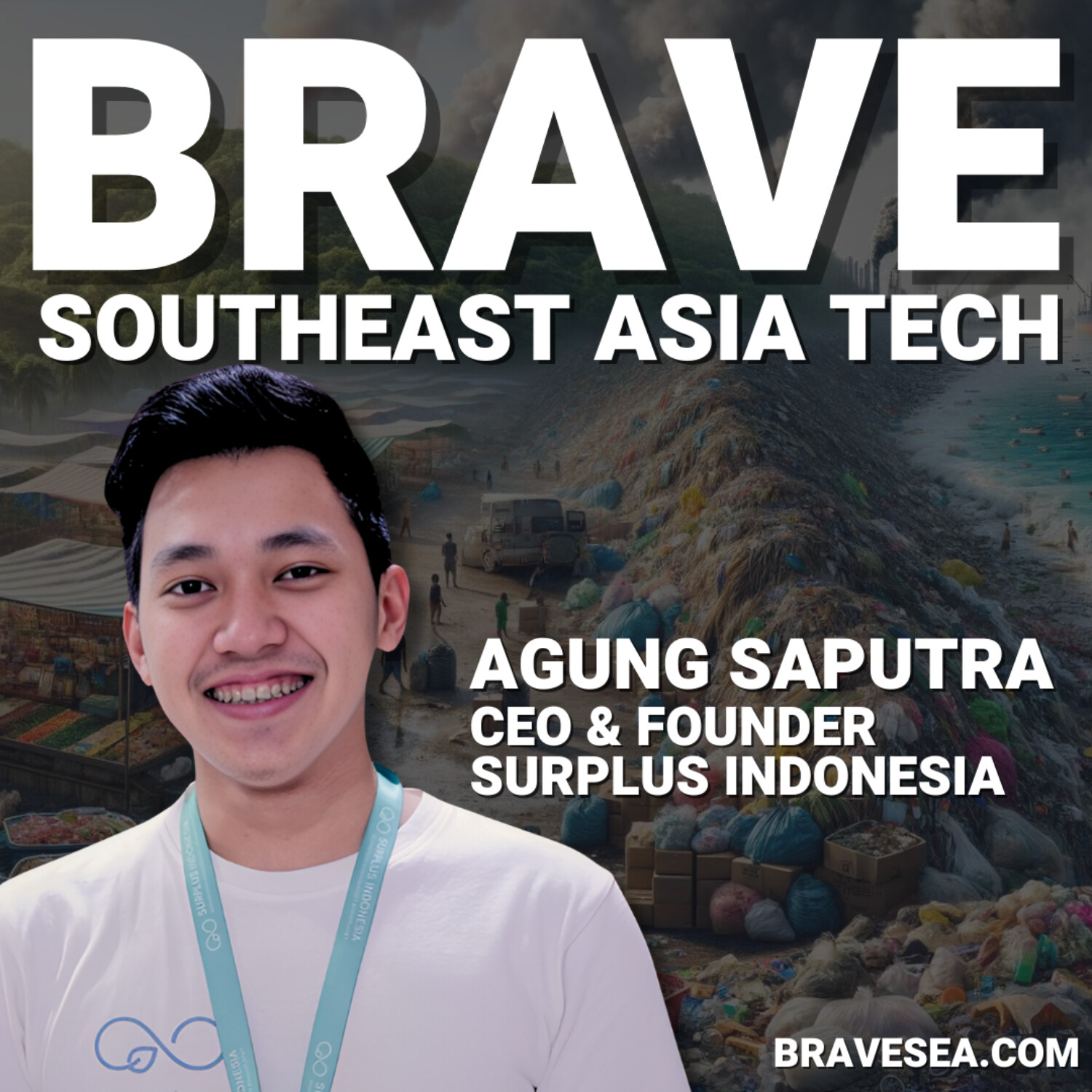
Agung Saputra: Indonesia Pollution Crisis, 48 Million Tons of Food Waste (170kg Per Capita) & Surplus Marketplace App - E432

BRAVE Southeast Asia Tech: Singapore, Indonesia, Vietnam, Philippines, Thailand & Malaysia Startups, Founders & Venture Capital VC (English)
Shownotes Transcript
Agung Saputra), CEO & Founder of Surplus Indonesia), and Jeremy Au) talked about three main themes:
Indonesia Pollution Crisis: Agung flagged that Indonesia is one the top 3 polluters in the world: #2 plastic polluter, #2 food wastage and #1 most air polluted city (Jakarta). He highlighted the lack of regulations and public awareness as major barriers to effective waste management for the country's severe environmental challenges. Indonesia's reliance on “ticking time bomb” landfills (rather than incineration or recycling) poses significant safety hazards, e.g. a landfill explosion in Bandung led to fatalities. Deforestation for urban development has led to significant biodiversity loss, e.g. the new capital city of Nusantara in Borneo. He underscored the need for comprehensive governmental action and community involvement to improve environmental practices.
48 Million Tons of Food Waste: Agung addressed the rapidly-rising problem of food waste, driven by its large population, increasing affluence and cultural attitudes (e.g. viewing an empty plate at the end of the meal as impolite). Harvard research) shows that 20M people (8%) in Indonesia are unable to meet their nutritional needs every year, and stunting affects one-third of children under five years old. However, 48 million tons of food worth $39B USD (~5% of Indonesia's GDP) is lost annually, which is equivalent to 170kg of food waste per person. Not only would redirecting edible food to food banks support people experiencing hunger and chronic malnutrition, but it would also help reduce greenhouse gas emissions produced from food ending up in the landfill. He warns that food waste will continue to increase as Indonesia gets larger and richer unless effective interventions are implemented.
Surplus Marketplace App: Agung described how Surplus Indonesia operates as a marketplace for surplus food, connecting consumers with discounted food items that would otherwise go to waste. The platform works similarly to Foodpanda, allowing users to find and purchase surplus food from local businesses via an app. Surplus Indonesia has grown significantly, reporting a threefold increase in revenue in 2023, which indicates a rising demand for sustainable practices. He also discussed the company's approach to ensuring food safety and quality, including a two-strikes policy for vendors who fail to meet standards. He highlighted that the primary customers are younger Indonesians, who are more environmentally conscious and willing to support sustainable businesses. He explained that the demographic shift is reflected in the increasing number of sustainability startups in the country, from just a few in 2019 to nearly a hundred by 2024.
Jeremy and Agung also talked about managing different types of waste and recycling streams, growth in sustainability-driven sectors, and the increasing involvement of young Indonesians in environmental issues.
Watch, listen or read the full insight at https://www.bravesea.com/blog/agung-saputra)
Nonton, dengar atau baca wawasan lengkapnya di https://www.bravesea.com/blog/agung-saputra-id)
观看、收听或阅读全文,请访问 https://www.bravesea.com/blog/agung-saputra-cn)
Get transcripts, startup resources & community discussions at )www.bravesea.com)
WhatsApp: )https://whatsapp.com/channel/0029VakR55X6BIElUEvkN02e)
TikTok: https://www.tiktok.com/@jeremyau)
Instagram: https://www.instagram.com/jeremyauz)
Twitter: https://twitter.com/jeremyau)
LinkedIn: https://www.linkedin.com/company/bravesea)
TikTok: https://www.tiktok.com/@jeremyau)
Instagram: https://www.instagram.com/jeremyauz)
Twitter: https://twitter.com/jeremyau)
LinkedIn: https://www.linkedin.com/company/bravesea)
English: Spotify) | YouTube) | Apple Podcasts)
Reach out to [email protected]) to learn more about Heymax!